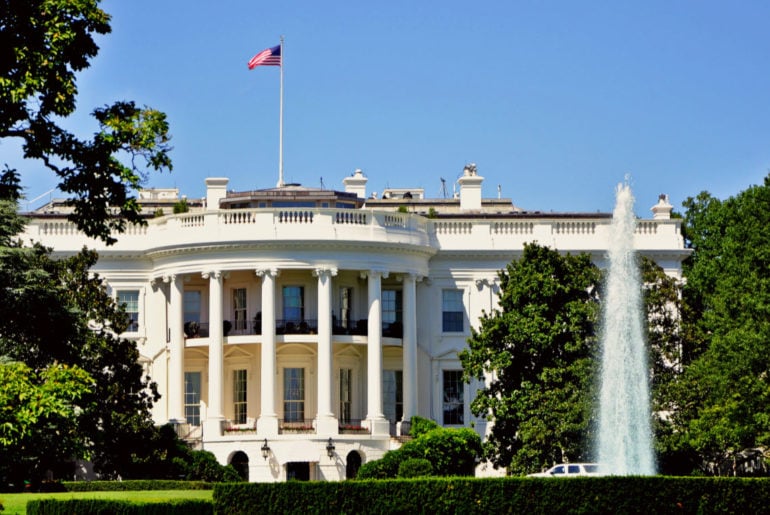On November 15, President Biden signed the more than USD 1 trillion Infrastructure Investment and Jobs Act into law. Despite substantial criticism and various attempts to amend the bill while it was under debate in Congress, the Infrastructure Act includes two changes to provisions of the Internal Revenue Code that deal with reporting obligations for certain digital assets transactions. Although one of these changes received much more attention than the other.
On November 10, 2021, the US Departments of State, Treasury, and Commerce issued a joint advisory (the “Advisory”) cautioning US companies operating in or considering operations in Cambodia to be conscious of dealings with entities and in sectors potentially involved in human rights abuses, criminal activities, and corrupt business practices. We describe the Advisory in additional detail below.
On November 18, 2021, President Biden signed Executive Order (“EO”) 14054 which terminates US sanctions related to Burundi by revoking EO 13712 of November 22, 2015. EO 13712 imposed sanctions related to Burundi due to “the killing of and violence against civilians, unrest, the incitement of imminent violence, and significant political repression” occurring in Burundi at the time and designated several parties as Specially Designated Nationals.
On November 10, the Department of State, Department of Treasury, and Department of Commerce released an advisory titled “Considerations for US Companies and Organizations that Conduct Business in Cambodia within Key Sectors or in Partnership with High Risk Entities” (the “Cambodia Advisory”). The Cambodia Advisory is focused on corporations and, according to the accompanying press release, is meant to caution businesses currently operating, or considering operations, in Cambodia to be mindful of interactions with entities and sectors potentially involved in human rights abuses, criminal activities, and corrupt business practices. This blog post will be focused on the corruption and responsible sourcing risks highlighted by the Cambodia Advisory.
On November 10, 2021, President Biden signed the Reinforcing Nicaragua’s Adherence to Conditions for Electoral Reform Act into law, which calls for increased sanctions against Nicaragua. This followed November 7 elections in Nicaragua that allowed President Daniel Ortega to stay in power for a fourth consecutive term.
On November 12, 2021, the US Department of the Treasury’s Office of Foreign Assets Control sanctioned four entities and two individuals pursuant to Executive Order 14046, “Imposing Sanctions on Certain Persons With Respect to the Humanitarian and Human Rights Crisis in Ethiopia”. These designations are in response to the growing humanitarian and human rights crisis and expanding military conflict in Ethiopia.
Please join us for a new weekly video series, hosted by Baker McKenzie’s North America Government Enforcement partners Tom Firestone and Jerome Tomas. This weekly briefing is available on demand and will cover new Cambodia sanctions and the Steven Bannon Indictment.
On November 3, 2021, the Commerce Department’s Bureau of Industry and Security (“BIS”) issued a final rule adding the following four entities to the Department of Commerce Bureau of Industry and Security Entity List: Candiru (Israel), NSO Group (Israel), Computer Security Initiative Consultancy PTE (Singapore), and Positive Technologies (Russia). The addition of the four entities comes after the October 21, 2021 publication of an interim rule by BIS establishing controls on the export, re-export, and in-country transfers of items that may be used for malicious cyber activities and is part of the ongoing effort by the Biden-Harris Administration to combat the use of digital tools for repression.
On October 26, 2021, the Department of Commerce’s Bureau of Industry and Security published an advance notice of proposed rulemaking seeking public comments concerning the identification of certain neuro “brain-computer interface” technology as an emerging technology and the potential imposition of export controls on such technology. Comments are due no later than December 10, 2021.
On November 2, the United States District Court for the District of Columbia dismissed the suit brought by a class of child laborers who mine cobalt in the Democratic Republic of Congo against several US tech companies under the Trafficking Victims Protection Reauthorization Act (“TVPRA”) and several common law based causes of action. TVPRA allows victims of human trafficking and certain other crimes such as forced labor to bring civil claims against those who knowingly benefitted from these crimes. Here, the complaint was based on two alleged TVPRA violations: forced labor and trafficking with respect to peonage, slavery, involuntary servitude, or forced labor.


